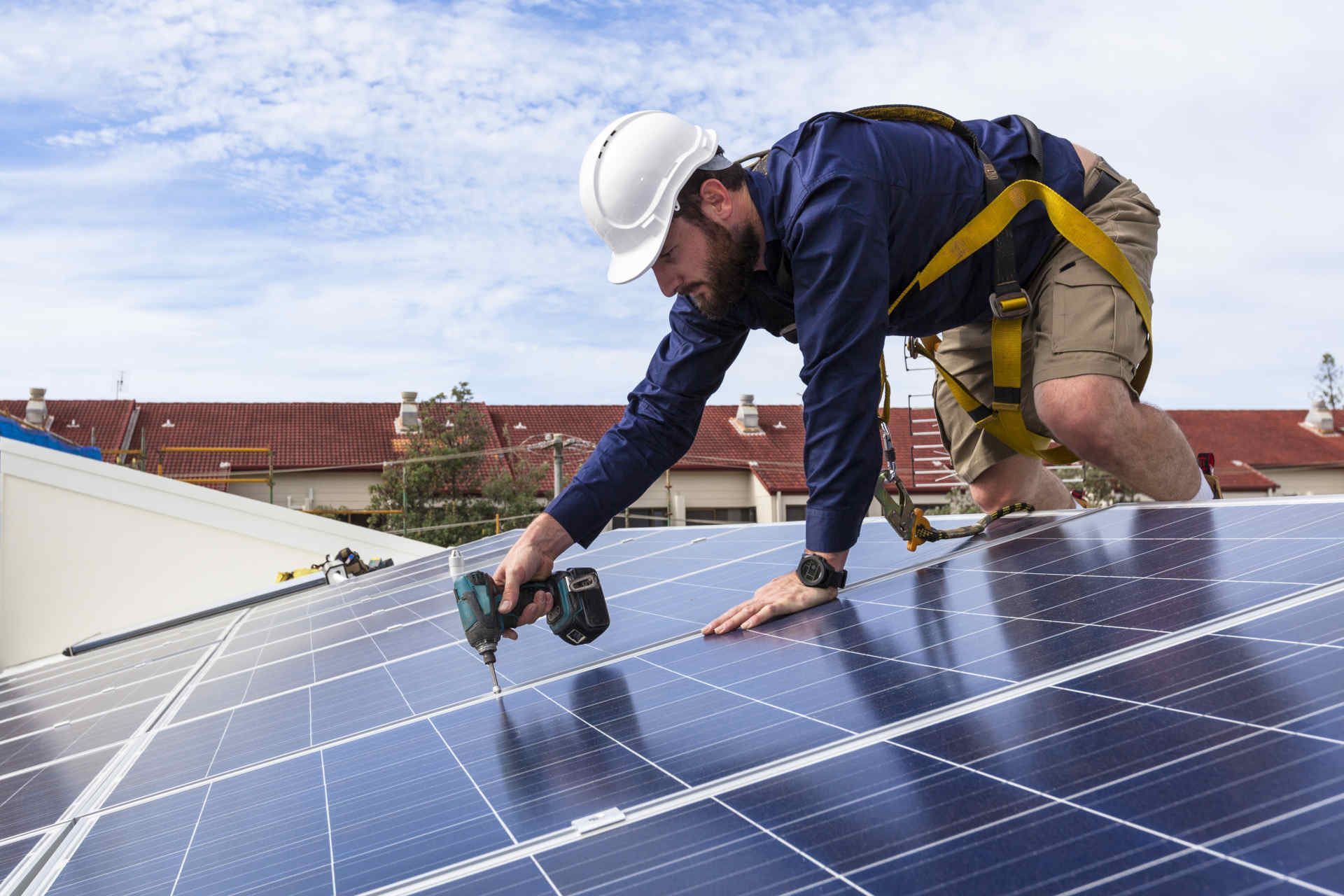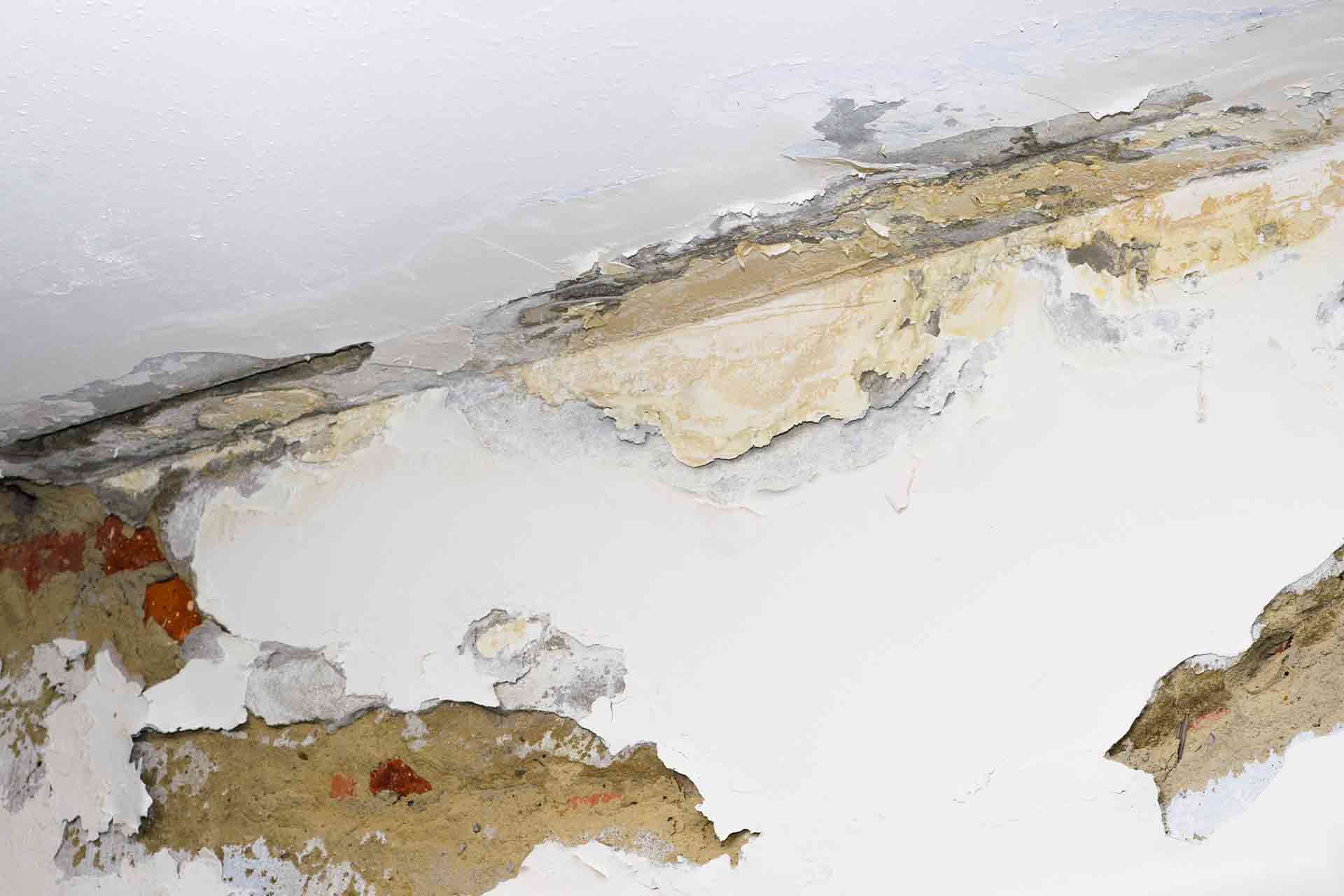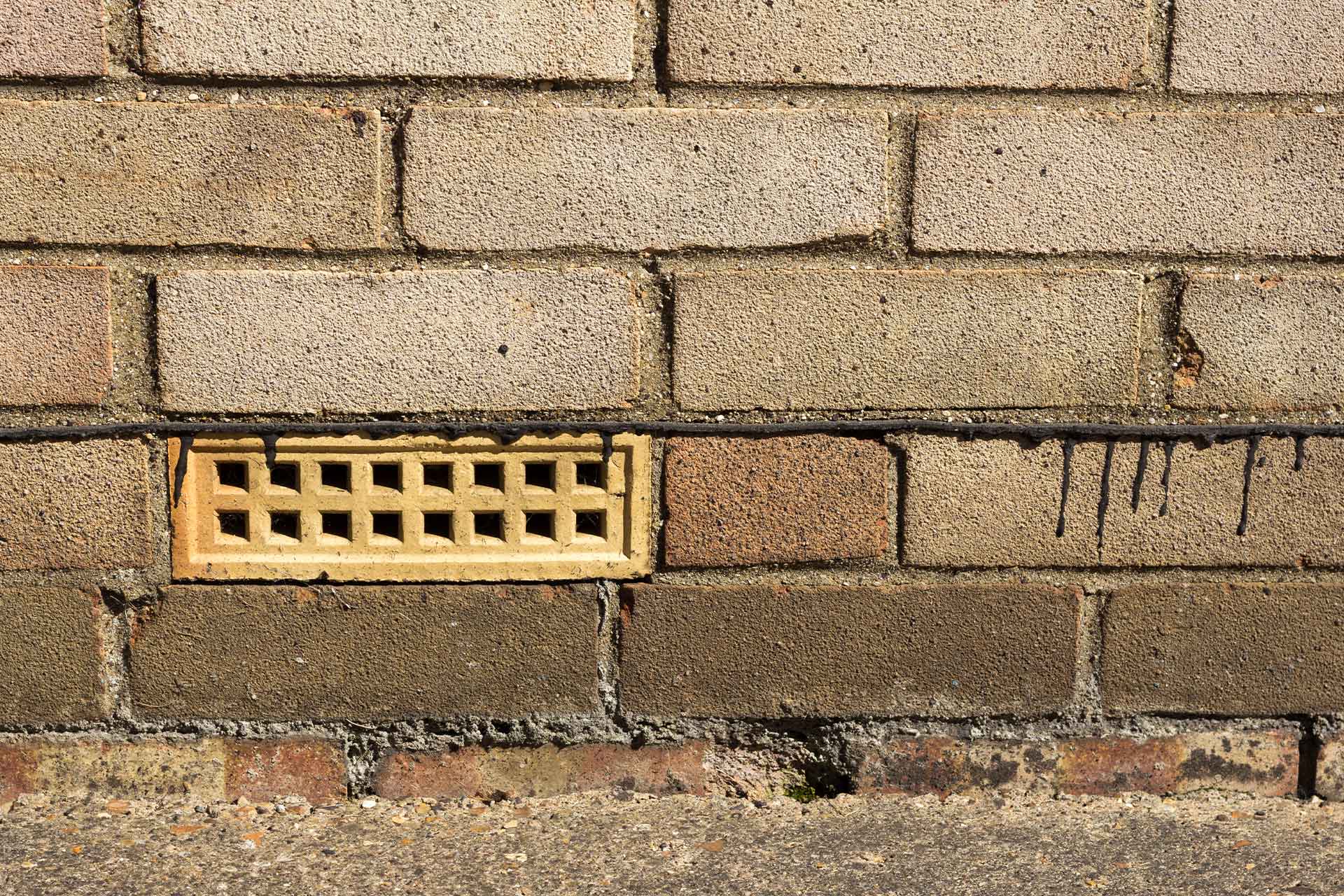Blog>Expert Advice>What is a damp survey?
Last updated: 18 February 2025
What is a damp survey?
If you’re worried your home may have damp, a damp survey should be your first point of call. But what is a damp survey?
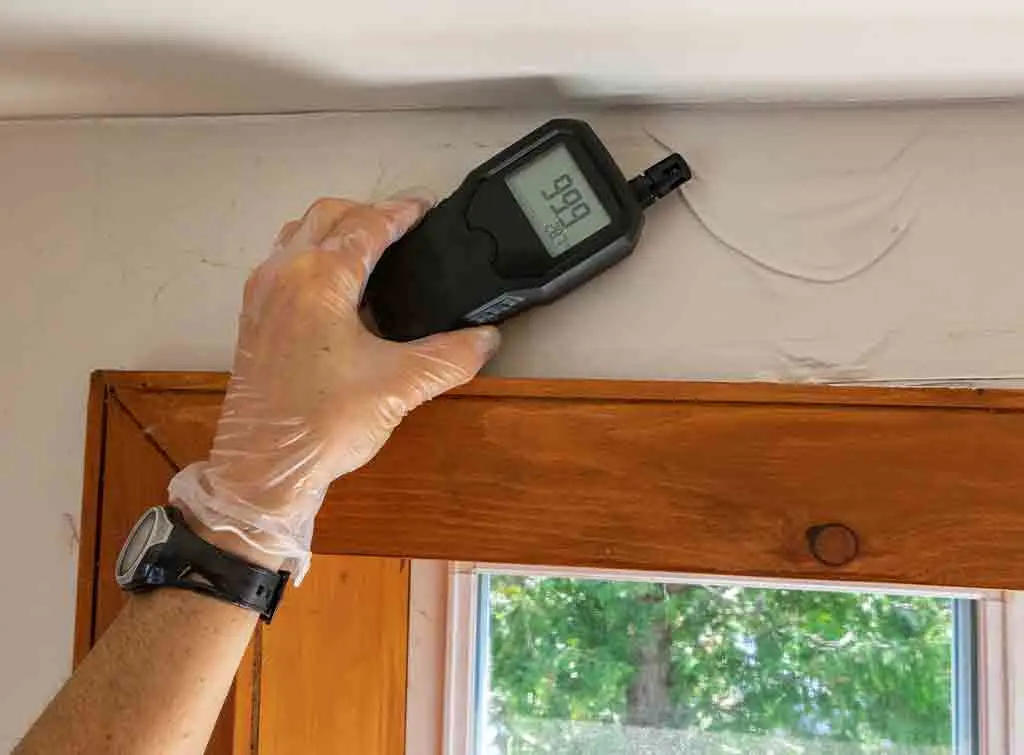
The word 'damp'' can strike fear in the heart of many homeowners. But instead of worrying, your first port of call should be a professional damp survey.
Here, we’ll answer what a damp survey is, and help you understand when you might need one. Let’s get started.
What is a damp survey on a house?
A damp survey is when a qualified professional inspects a property to look for damp.
They’ll identify:
Whether the property has damp
What type of damp is present
What treatment is required to get rid of the damp
They’ll do this by thoroughly investigating the property and using tools to detect high moisture levels.
If you suspect your home might have damp – or you’re buying a property that has signs of it – a damp survey can be a great way to confirm it and help you understand the severity of the issue.
It can also set you off on the right foot when it comes to resolving the signs of damp, as you’ll have a clearer idea of the treatment needed and won’t waste your money on unnecessary fixes.
See the tradespeople we've checked and recommend for your job
What is involved in a damp survey?
During a damp survey, your surveyor will carry out several checks on both the inside and outside of the property.
So, what do they do on a damp survey?
Check the outdoor ground elevations against the inside floor levels
Inspect the condition of rainwater items
Look at the type and condition of the property’s brick, stone and pointing
Check the roof coverings and any chimney stacks for damage
Check whether the property has solid or cavity walls
Look for any recent alterations
Look for wear and tear on ornamental finishes
Check for tide lines over skirting boards
Identify musty or wet odours
Check for deterioration of timber border boards
Identify damp patches and degradation of wall plaster
Check for low-level salting of plaster surfaces
Identify low-level peeling of wallpaper
Check for issues related to condensation, including surface mould
Take readings with an electrical resistance meter to detect high moisture levels
Inspect ventilation points and extractor fans
Talk to the resident to establish the history of the problem
As you can see, it’s a very thorough inspection that not only aims to identify damp issues, but also takes steps to pinpoint their likely cause and how they can be resolved.
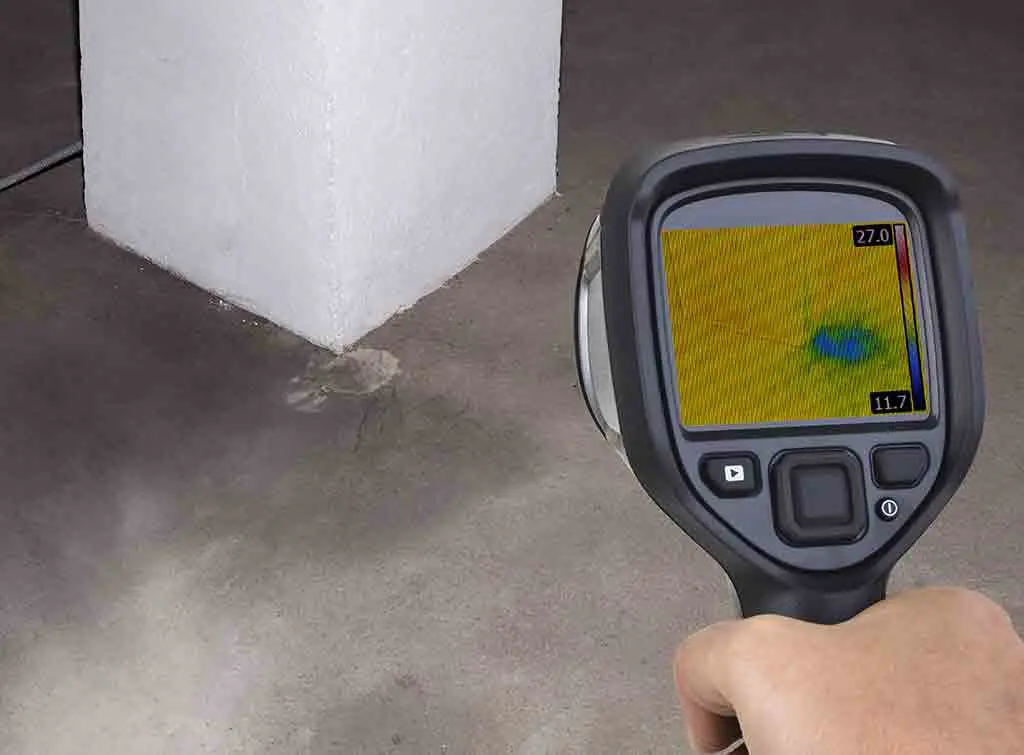
How long does a damp survey take?
A damp survey will usually take 3-4 hours.
Exactly how long it takes will depend on a number of factors, including:
The size of the property
Its structure
The kind of damp problem
The extent of the damage
Your damp surveyor should be able to give you a rough idea of how long your survey will take before starting.
How long does a damp survey take to arrive?
After your damp survey is complete, you’ll receive a detailed report that outlines your surveyor’s findings – usually by email or post.
How long it takes for the report to arrive will depend on your damp surveyor and how they work.
However, you can usually expect the report to be complete around 1-3 days after the damp surveyor finishes inspecting the property.
In the report, you’ll find:
Details of the issues found
Information about the severity of the damage
Necessary next steps
Any extra research carried out by the surveyor after the survey
Your report may also include an estimate for how much it would cost to solve the damp problem completely.
Is it worth having a damp survey?
A damp survey is a must if you suspect that your property—or a property you’re buying—has damp issues.
There are two main groups of people who could most benefit from a damp survey.
1. Homeowners / Landlords
If you own your property and you spot signs of damp, a damp survey will confirm whether your fears are correct.
It will also help to identify the cause of the problem, the extent of the damage, and the best course of action moving forwards to damp proof your home.
Here are some signs that you could do with a damp survey:
Wet walls and ceilings
Water stains on plaster
Black mould
Peeling wallpaper
Crumbling plaster
Paint discolouration
A musty smell
Rotting skirting boards
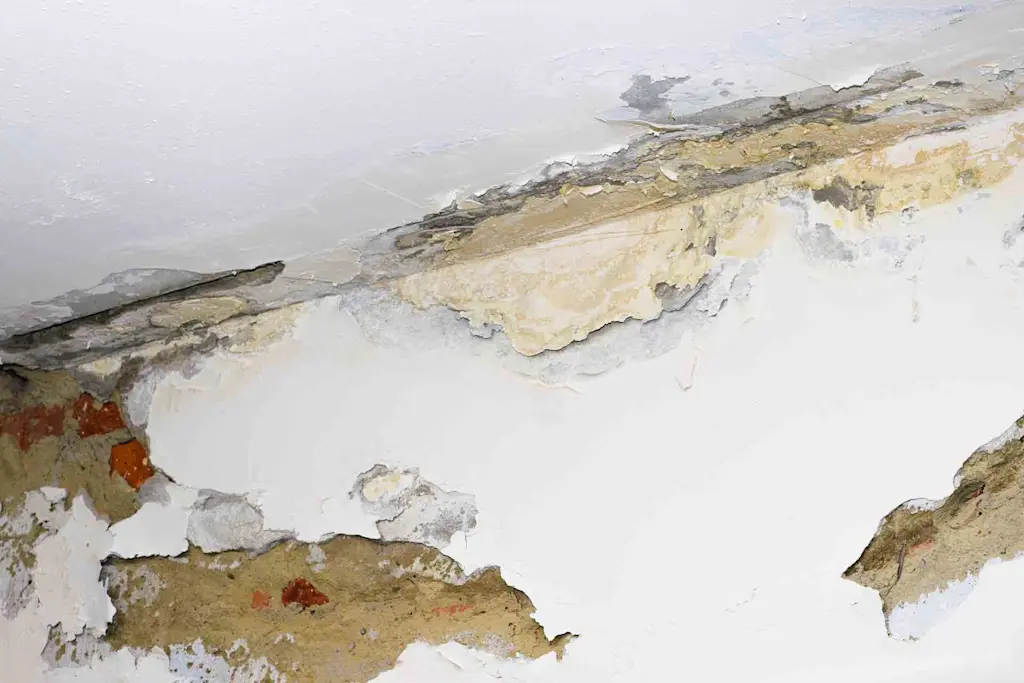
2. Homebuyers
If you’re buying a property, a damp survey can make sure there aren’t any nasty surprises.
Hopefully, you’re already in the process of getting a house survey carried out. This will flag any issues with the property that you’ll want to be aware of before buying.
If the survey reveals damp, it’s a good idea to commission a damp survey too so that the issue can be inspected in more detail.
A damp survey won’t be a legal requirement. But it will give you the knowledge you need to make an informed choice about whether you want to go ahead with your property purchase.
Sometimes, getting a mortgage from your mortgage lender may also be a requirement, as they’ll want to know that the property is worth the amount they’re lending you.
See the tradespeople we've checked and recommend for your job
How much does a damp survey cost?
The cost of a damp survey will vary depending on the size of your property – bigger properties generally cost more to survey as the process takes longer.
With that in mind, here are some ballpark costs:
2-bed flat: £200
3-bed terraced house: £400
4-bed detached house:£600
Be very wary of any companies you come across offering a free damp survey.
These companies usually make their money by carrying out damp proofing work to the properties they survey.
That means it’s in their interest to find issues – and it’s also in their interest to recommend their own treatments, which may not always be best for your property.
We’d always recommend instructing an independent damp surveyor who’s CSTDB or CSSW qualified.
CSTB stands for ‘Certificated Surveyor of Timber & Dampness in Buildings,’ while CSSW stands for ‘Certified Surveyor in Structural Waterproofing’ and is specifically related to damp proofing belowground.
By choosing an independent surveyor with the right certifications, you can be confident that you’re getting unbiased information, which is likely to save you money in the long run!
Who pays for a damp survey?
If you want to get a survey done on a property you’re hoping to buy, you might be wondering who pays for the damp survey.
After all, the property isn’t yet yours. So, should you be the one lumped with the cost?
There’s no hard and fast rule, but usually, you’ll be the one to pay for the damp survey as a prospective buyer.
After all, it’s in your interest to make sure there are no nasty issues in the property you’re buying – or at least to know what you’re getting yourself into. You could see it as similar to getting a general house survey, which most buyers purchase readily.
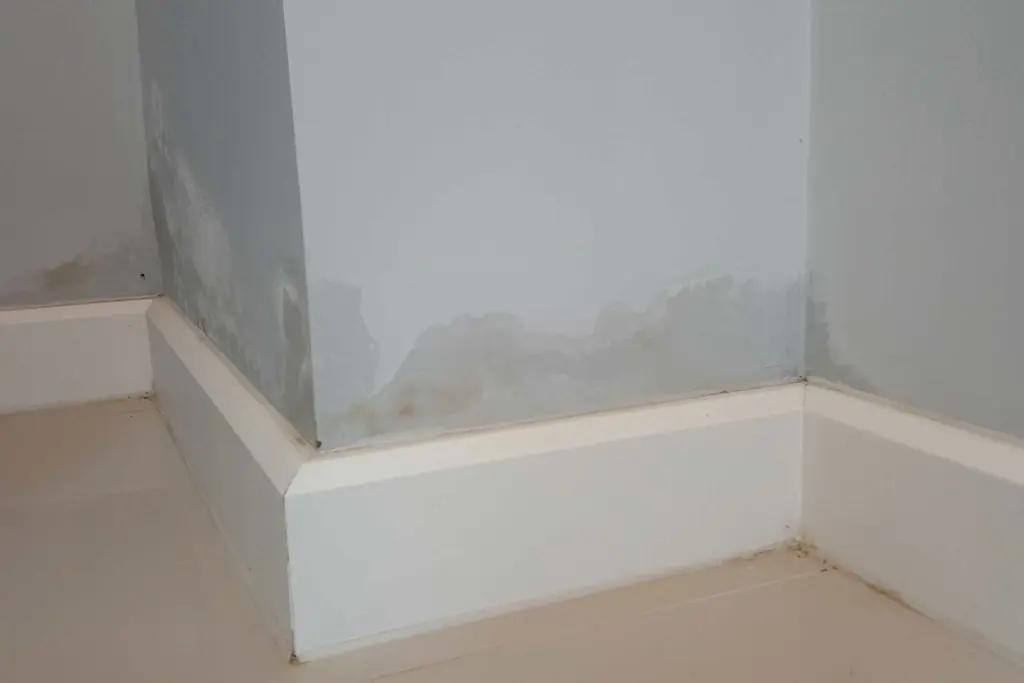
How to find a reliable damp surveyor
Read reviews
Always check to see what other homeowners have to say about any independent damp surveyors in your area.
That way, you can make sure to choose someone that others rate.

We check the reviews on Checkatrade are from real people, and that trades meet our high standards.
Get multiple quotes
It’s best to get at least three quotes for the job.
This will allow you to get a feel for a range of different surveyors. Plus, you’ll be able to check that you’re getting a fair and competitive price for the work.
Make sure they’re independent
Make sure to hire an independent damp surveyor who won’t be tempted to recommend their own treatments.
This will ensure that you get unbiased advice that you trust.
Check their accreditations
You’ll want to check that your surveyor is CSTDB or CSSW registered.
Being a member of a trade body such as the Property Care Association (PCA) will also demonstrate their commitment to the industry standards.
Get recommendations, and cross-check them on a trusted directory
Know someone who’s recently had a damp survey completed? Why not ask if they would recommend the specialist they used?
Make sure to cross-reference any recommendations on Checkatrade, so you know they’ve also been checked and vetted by us.
Use Checkatrade!
At Checkatrade, all our tradespeople have to pass up to 12 checks and are regularly reviewed on everything from punctuality to professionalism. So, you know they’re the real deal!
Key takeaways
A damp survey is a must if you spot signs of damp or you’re buying a property that may have a damp issue
A damp survey on a 3-bed terraced house costs on average£400
Always instruct an independent damp surveyor who is CSTDB or CSSW qualified
Ready to find the right damp surveyor for the job? Simply enter your postcode below to get advice from an expert you can trust.
See the tradespeople we've checked and recommend for your job
More Expert Advice Articles
See the tradespeople we've checked and recommend for your job

